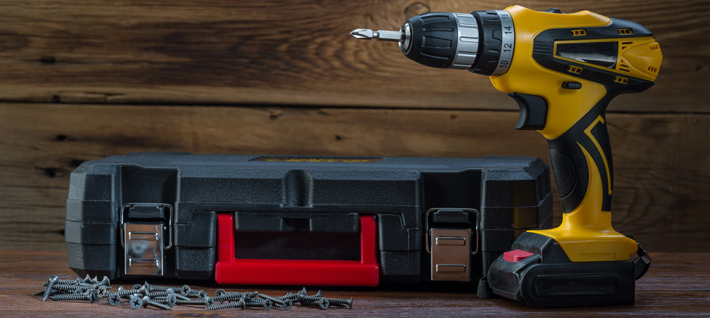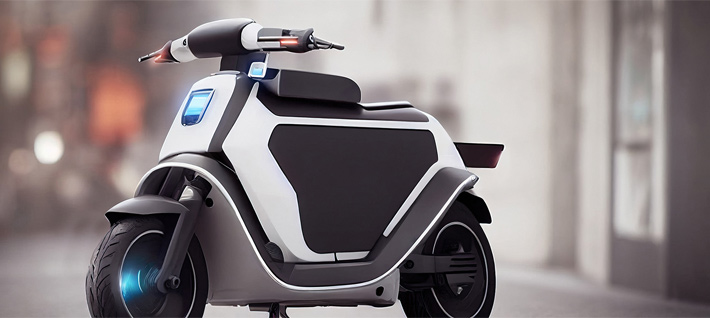About Our
Products
- Home
- Products
- Surface mount fuse
- 60 Amperes SFK Series Self Control Protector (SCP)
Surface mount fuse
60 Amperes SFK Series Self Control Protector (SCP)
Suitable for power systems and high power equipment.
-
- Product name
- SFK-0660 / SFK-1260 / SFK-1460 / SFK-2060 / SFK-3060 / SFK-4060 / SFK-5060
-
- Features
-
- Achieving rated current 60 Amperes as surface mounted fuses.
- Applicable up to 14 cells in series.
- Protects Li-ion batteries from overcharging (overvoltage) and overcurrent.
- When overcharging occurs, the fuse element melts to shut off the circuit, and simultaneously the power to the heater is also cut off.
- Placing a heater directly under the fuse element breaks the circuit quickly.
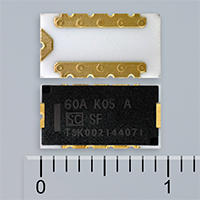
Related articles
Specifications
| Product name | SFK-0660 | SFK-1260 | SFK-1460 | SFK-2060 |
|---|---|---|---|---|
| Applicable cells in series | 2 cells | 3 cells | 4 cells | 5 cells |
| Rated current (A) | 60 | |||
| Rated voltage (VDC)*1 | 80 | |||
| Rated breaking capacity (A) | 160 | |||
| Operating voltage (V) | 6.00 to 8.90 | 9.6 to 13.5 | 13.0 to 18.4 | 16.7 to 23.5 |
| Heater resistance (Ω) | 0.80 to 1.08 | 1.83 to 2.75 | 3.4 to 5.1 | 5.6 to 8.4 |
| Fuse resistance (mΩ) | 0.8 | |||
| Dimension (mm)*2 | 9.5 x 5.0 x 2.0 (See below diagram) | |||
| Product name | SFK-3060 | SFK-4060 | SFK-5060 |
|---|---|---|---|
| Applicable cells in series | 6 to 7 cells | 9 to 10 cells | 12 to 14 cells |
| Rated current (A) | 60 | ||
| Rated voltage (VDC)*1 | 80 | ||
| Rated breaking capacity (A) | 160 | ||
| Operating voltage (V) | 22.3 to 31.5 | 33.0 to 46.9 | 43.7 to 62.0 |
| Heater resistance (Ω) | 10.0 to 15.0 | 22.0 to 33.0 | 38.5 to 57.76 |
| Fuse resistance (mΩ) | 0.8 | ||
| Dimension (mm)*2 | 9.5 x 5.0 x 2.0 (See below diagram) | ||
- *1 Maximum voltage at which cutoff of the fuse is possible. It is not the operating voltage for the heater.
UL certification: File No. E167588
TUV certification: Certificate No. J9650637
RoHS directive: Conforming - *2 Values without tolerance indications are nominal values.
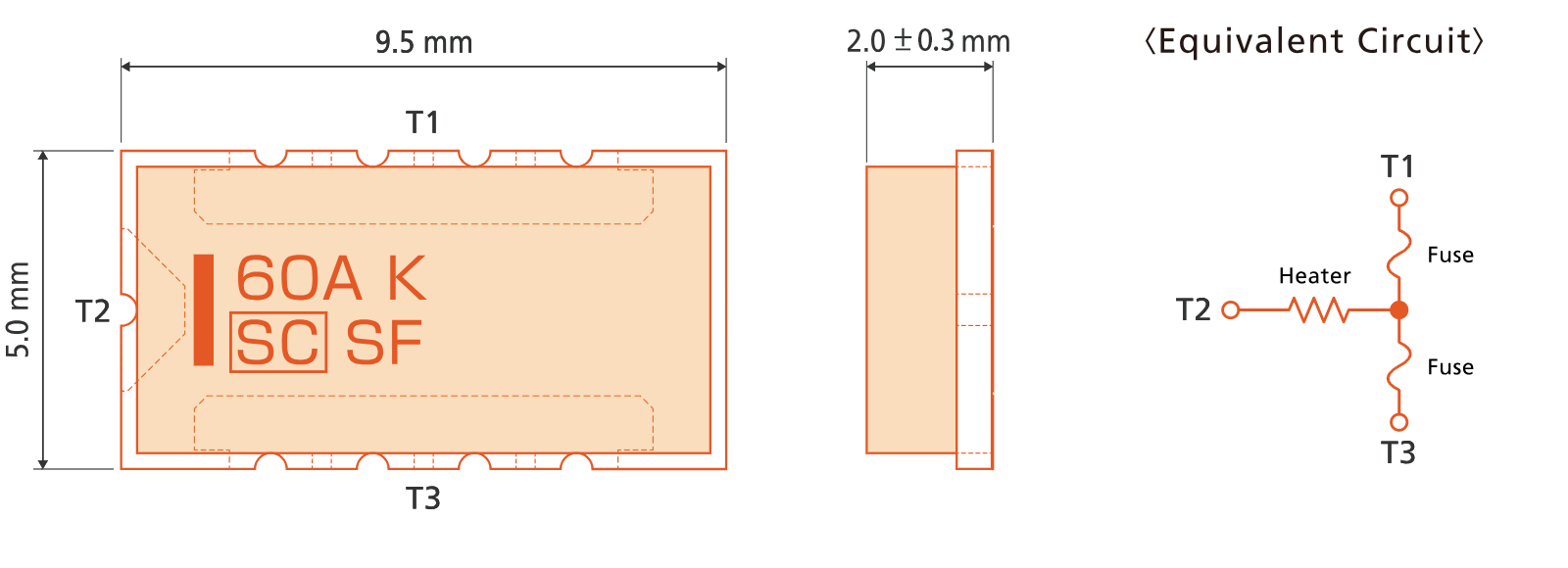
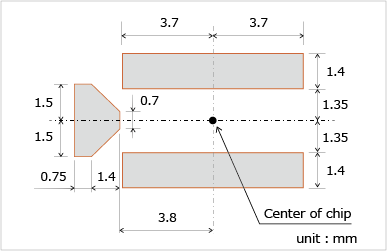
These are recommended sizes and we can't guarantee the quality of product when mounted.
We recommend our customer to verify if our products could work with your design guidelines.
Suitable for Li-ion batteries of cordless power tools, storage batteries, electric power-assisted bicycles, electric motorcycles, and other similar battery powered devices.
caution
Note on the characteristic data given - Data on the characteristics of the products described in this page based on the results of evaluations carried out by the company. This does not guarantee that the characteristics of the product conform with your usage environment. Before use, review the usage conditions based on evaluation data obtained from the equipment and substrates actually used.
Product information
- Anisotropic conductive film (ACF)
- Anti-reflection film
- Optical elastic resin (SVR)
- Adhesive
-
Surface mount fuse
Self Control Protector (SCP)
- 150 Amperes SFM Series Self Control Protector (SCP)
- 120 Amperes SFM Series Self Control Protector (SCP)
- 75 Amperes SFK Series Self Control Protector (SCP)
- 60 Amperes SFK Series Self Control Protector (SCP)
- 45 Amperes SFK Series Self Control Protector (SCP)
- 30 Amperes (Small) SFS Series Self Control Protector (SCP)
- 30 Amperes (small) SFH Series Self Control Protector (SCP)
- 30 Amperes SFK Series Self Control Protector (SCP)
- 22 Amperes (small) SFJ Series Self Control Protector (SCP)
- 21A (compact) SFJ series Self Control Protector (SCP)
- 15 Amperes (small) SFJ Series Self Control Protector (SCP)
- 12 Amperes (small and thin) SFR Series Self Control Protector (SCP)
- 12 Amperes (small) SFJ Series Self Control Protector (SCP)
- 5 Amperes (small and thin) SFR Series Self Control Protector (SCP)
Power Current Protector (PCP)
- Eye shield material for medical
- Double coated tapes
- Single coated tapes
- Optical devices
- UV curable resin for optical discs
- Sputtering
Optical Semiconductor



